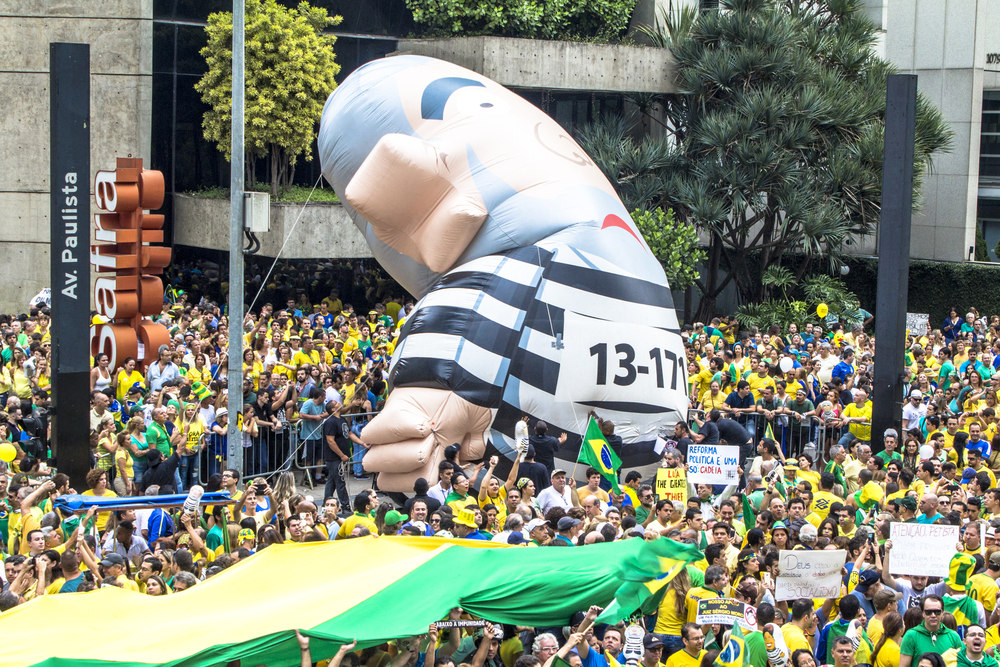One of the keys to the success of the Car Wash investigation—the inquiry into political corruption that upended Brazil’s political system between 2014 and 2017—was the weaponization of street protests to tip the scale against elected officials and private actors accused of wrongdoing. By publicly endorsing calls for mobilization, then-federal judge Sergio Moro and prosecutor Deltan Dalagnol helped right-wing social movements coordinate waves of public protests which kept the political establishment on its toes.
Arguably the people on the streets prevented the political concertation proposed by former Senate majority leader, Romero Jucá, who sought to cease investigations and protect corrupt politicians with the active support “of the Supreme Court, and everyone.”
As the masses of yellow shirts—in order to distance themselves from Brazil’s political parties, many activists wore the legendary yellow jersey of the national football team—flocked to the streets of Brazil’s largest cities, demanding accountability for massive public corruption, many praised the Car Wash investigation for ushering a new era in Brazilian politics: instead of resignation and cynicism, where many Brazilians would forgive their most-corrupt politicians...


 Search
Search






































